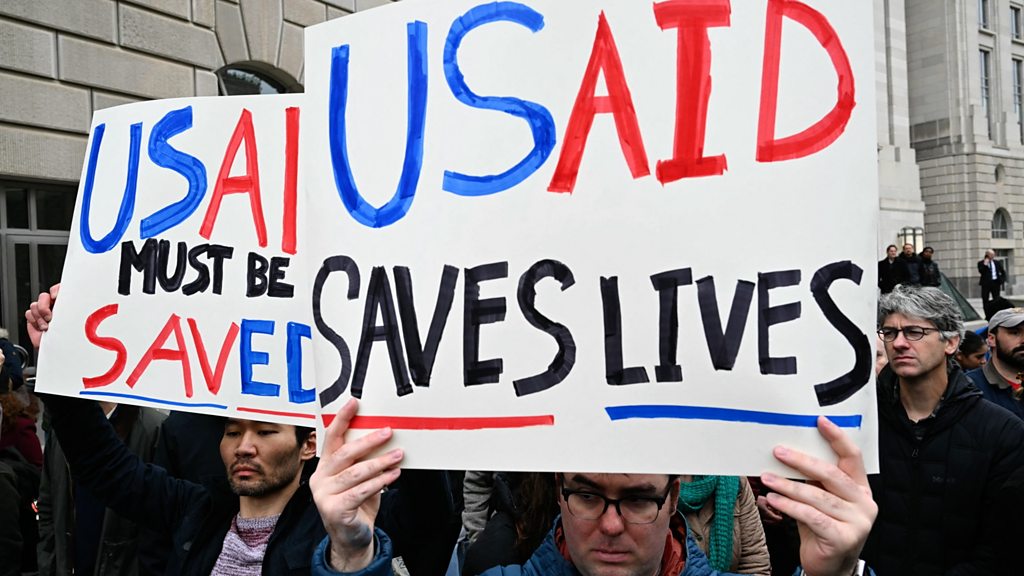KATHMANDU: The Trump administration has initiated a sweeping layoff at the U.S. Agency for International Development (USAID), terminating approximately 1,600 U.S.-based positions and placing nearly all global staff on administrative leave. This move, announced on February 23, 2025, is part of a broader effort to reduce the size of the federal government and reevaluate U.S. foreign assistance policies.
Global Impact on Development Initiatives
USAID has been a major force in international development, funding crucial programs in health, education, disaster relief, and economic development across the world. The mass layoffs threaten to disrupt ongoing humanitarian efforts in several developing nations, including Nepal, where USAID has been actively involved in health, governance, and climate resilience programs.
“The decision to lay off such a large number of USAID staff will have a lasting impact on U.S. foreign aid and the global development sector,” said a former high-ranking USAID official. “Key projects in South Asia, Africa, and Latin America will likely be frozen, and countries that depend on U.S. aid will have to look for alternative sources of funding.”
Programs such as the Global Health Initiative, which provides assistance in battling diseases like malaria and tuberculosis, and emergency disaster relief efforts are now facing uncertainty. Experts warn that the immediate cessation of aid could put millions of lives at risk, particularly in countries with fragile health infrastructure.
Political Backlash and Criticism
The move has sparked widespread criticism from both domestic and international stakeholders. Democratic lawmakers have condemned the layoffs as reckless and detrimental to U.S. diplomatic relations.
“This is a disastrous decision that weakens America’s global influence and credibility,” said Senator Chris Van Hollen. “USAID has been at the forefront of fostering stability, democracy, and economic growth in developing nations. These cuts send the wrong message to our allies and partners.”
Meanwhile, humanitarian organizations have also raised concerns. The International Rescue Committee (IRC) and Oxfam issued statements warning that the abrupt layoffs would lead to disruptions in critical relief operations.
“The U.S. government has a moral obligation to continue providing aid to the world’s most vulnerable populations,” said an IRC spokesperson. “Without USAID’s funding and logistical support, millions could face food insecurity and inadequate healthcare.”
Future of U.S. Foreign Assistance
The White House has defended the decision, arguing that it aligns with its goal of reducing what it calls “wasteful spending” in international programs. President Trump’s administration has repeatedly pushed for a reduction in foreign aid, arguing that funds should be redirected toward domestic priorities.
While USAID has yet to announce a comprehensive restructuring plan, sources indicate that further downsizing may be on the horizon. With most staff placed on administrative leave and crucial programs frozen, the long-term future of U.S. development aid remains uncertain.
Government officials and foreign policy analysts now question whether other federal agencies involved in global development, such as the State Department and Peace Corps, may face similar budget cuts in the coming months.

